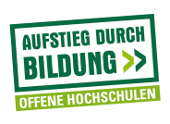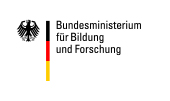Solid-State Sensors / Festkörpersensoren
Module group: Sensorik /Sensor Technology
The advances in microelectronics and micro electro-mechanical systems (MEMS) have revolutionized the scenario of sensor technology. Thanks to new materials and processes, traditional bulky, slow and expensive sensor systems could be replaced by miniaturized and integrated smart sensors based on semiconductors. With the help of solid-state sensors, various application areas have been developed. In everyday life, we encounter them, for example in the form of navigation and control systems in vehicles or as microphones, accelerometers, compass and cameras in mobile phones and tablets. In addition to the automotive industry and the mobile communications, solid-state sensors find applications in many other areas, for example in health care to record the blood pressure or body temperature in real time.
This module imparts a general overview of solid-state sensors with different points of focus, such as sensor system design, operational amplifiers, and solid-state physics. In addition, various semiconductor-based detection methods for radiation (ionizing and non-ionizing), magnetic fields, mechanical forces, and temperature. In addition, the students are intensively dealing with the fundamentals of MEMS.
The Description of the module you find here.
Review of the basics of:
- sensor system design
- operational amplifiers
- solid-state physics
Semiconductor-based detection methods for:
- radiation (ionizing and non-ionizing)
- magnetic fields
- mechanical forces
- temperature
Basics on MEMS (micro electro-mechanical systems)
The advances in microelectronics and micro electro-mechanical systems (MEMS) have revolutionized the scenario of sensor technology. Thanks to new materials and processes, traditional bulky, slow and expensive sensor systems could be replaced by miniaturized and integrated smart sensors based on semiconductors. With the help of solid-state sensors, various application areas have been developed. In everyday life, we encounter them, for example in the form of navigation and control systems in vehicles or as microphones, accelerometers, compass and cameras in mobile phones and tablets. In addition to the automotive industry and the mobile communications, solid-state sensors find applications in many other areas, for example in health care to record the blood pressure or body temperature in real time.
Students can describe and explain principles of operation, technological implementations and application areas of different sensors. They are further able to classify given semiconductor sensors according to fundamental principles. They recognize and discuss the various physical phenomena in semiconductors, which are exploited for the detection of physical quantities and their conversion to electrical signals. They know various semiconductor materials suitable for the production of sensors, analyze the special properties of each one, explain and predict their response under different conditions and can calculate sensor examples for different measurement needs. The students can design a solid-state sensor choosing the right material among several semiconductors. They are able to analyze a measurement problem, compare appropriate sensing techniques and develop their own solution. Doing this they can properly dimension the sensor unit to meet the design specifications. Furthermore, the students are able to reflect and critically analyze research in the field of seminconductor sensors.
The online part of the study programme takes place in self-study and in the form of group work. For the self-study part of the programme, video lectures with detailed information about the contents and an elaborated script are offered. The script has been developed especially for extra-occupational learners in regard to the didactic concept of Ulm University. It contains breaks for independent study, multiple and single choice tests, quizzes, exercises, etc.
Your mentor will offer online seminars in periodic intervals. These seminars will help you to handle the exercises and work on the learning topics.
An online forum for exchange with the other students will also be available.
Requirement is a first academic degree.
Basic knowledge of solid-state physics and electronics.
Recommended requirements:
- Desktop computer or notebook, with a supported version of Microsoft Windows, Apple macOS or Linux
- Headset
- Current version of Mozilla Firefox, Google Chrome, Apple Safari or Microsoft Edge
- Access to the internet (e.g., via xDSL, Cable, LTE, 5G) with a minimum data rate of 3 Mbit/s for downstream and 384 kbit/s for upstream.
In case of questions regarding the technical requirements, please don't hesitate to contact us.
Written exam: 2 h
For admission to the exam the following requirements have to be met: Successful completion of all exercises
In case of hardship the candidate can write an informal request to the coordinator in order to be given admission to the exam. In case of sickness a doctor's certicate has to be submitted to the coordinator.
After finishing the module successfully you will get a certificate and a supplement, which will list the contents of the module and the competences you have acquired. The supplement confirms the equivalent of 6 credit points (ECTS).
Lecturer

Dott. Alberto Pasquarelli
Institute of Electonic Devices and Circuits

Gefördert von:



